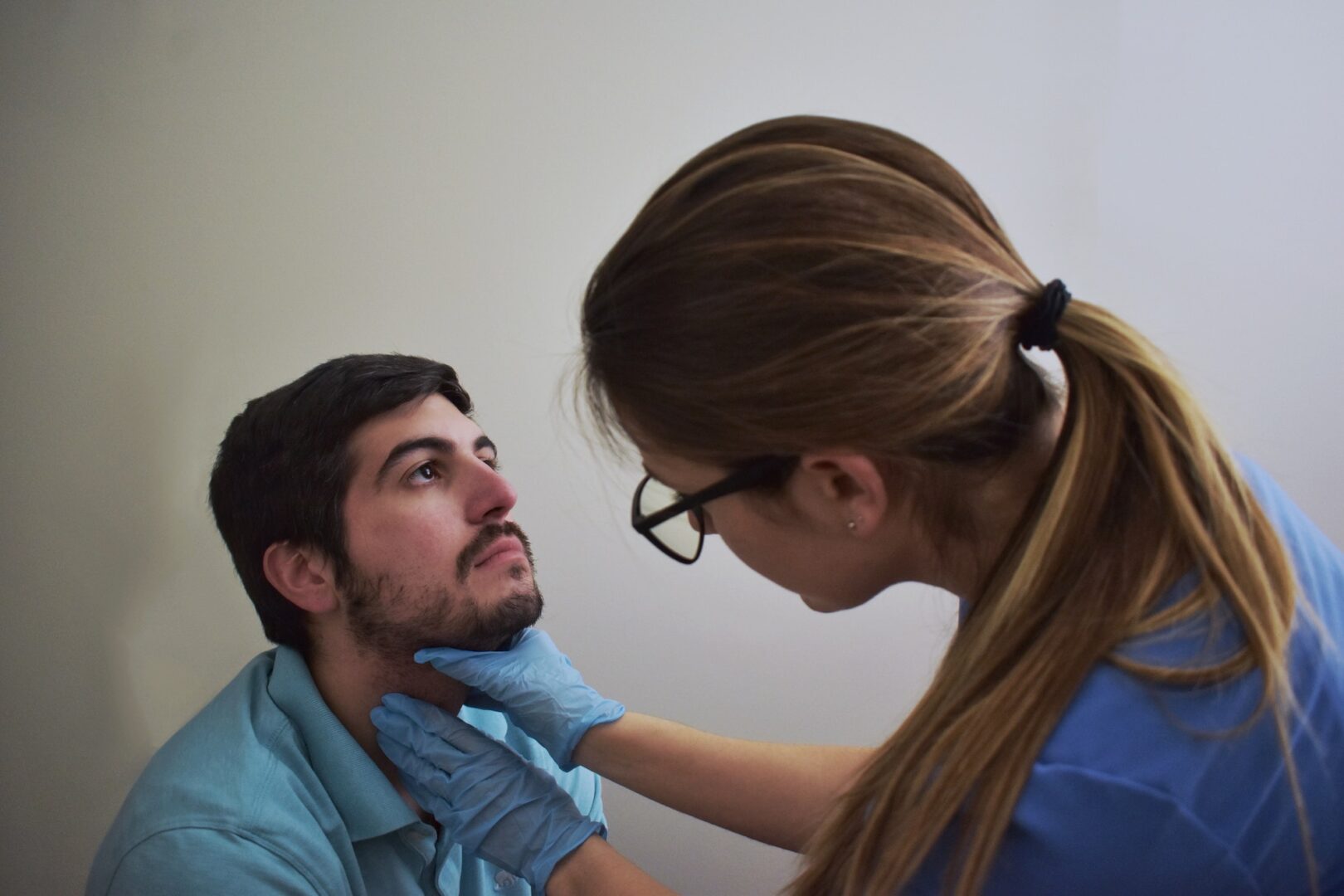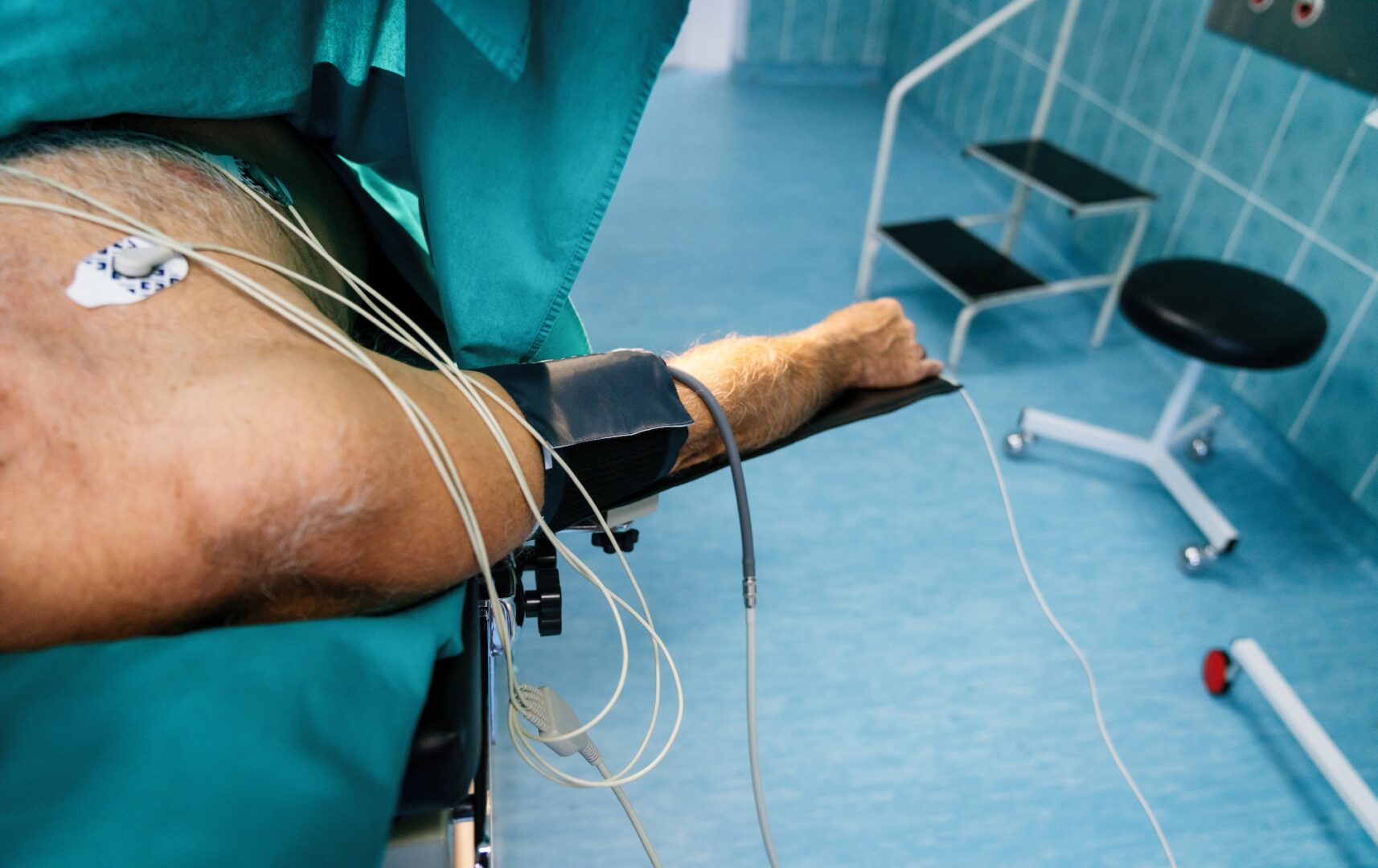Introduction to Occupational Health Clinics
Importance of Occupational Health Clinics
Occupational health clinics play a crucial role in maintaining the health and safety of employees in the workplace. These clinics are dedicated to preventing work-related injuries and illnesses, promoting overall well-being, and ensuring compliance with health and safety regulations. By providing comprehensive healthcare services, occupational health clinics help employers create a safer and healthier work environment.
The importance of occupational health clinics can be seen in several key areas:
- Injury Prevention: Through regular health screenings and ergonomic assessments, clinics help identify potential hazards and implement preventive measures. Learn more about creating a safer workplace through early health screenings.
- Regulatory Compliance: Clinics ensure that businesses comply with Occupational Safety and Health Administration (OSHA) regulations, reducing the risk of fines and legal issues. For more details, visit our article on understanding OSHA compliance and occupational health exams.
- Employee Productivity: By addressing health concerns promptly and effectively, clinics help maintain high levels of employee productivity. Discover how workplace wellness programs improve employee productivity.
Overview of Post-Injury Care
Post-injury care is a critical component of the services provided by occupational health clinics. When an employee sustains a work-related injury, timely and effective medical intervention is essential for a successful recovery. Occupational health clinics offer a range of post-injury care services designed to facilitate healing and ensure a smooth return to work.
Key aspects of post-injury care include:
- Medical Evaluation and Treatment: Immediate assessment and treatment of injuries to minimize complications and promote recovery.
- Rehabilitation Services: Physical therapy and other rehabilitation services to restore function and mobility.
- Return-to-Work Programs: Customized plans to help employees transition back to work safely and efficiently. For more information, read our article on how to build an effective return-to-work program.
| Service | Description |
|---|---|
| Medical Evaluation | Initial assessment and diagnosis of injuries |
| Treatment | Immediate care and ongoing medical management |
| Rehabilitation | Physical therapy and other restorative services |
| Return-to-Work | Customized plans for safe work reintegration |
Occupational health clinics are staffed with qualified healthcare professionals who have specialized training in workplace health and safety. Their expertise ensures that employees receive the highest standard of care, reducing downtime and promoting long-term health and wellness. For more insights, explore our article on how occupational health services reduce healthcare costs for employers.
Comprehensive Services Offered
Occupational health clinics play a crucial role in post-injury care by providing a range of comprehensive services. These services ensure that employees receive the necessary care to recover and return to work safely and efficiently.
Medical Evaluation and Treatment
Our clinics offer thorough medical evaluations and treatments for injured employees. This includes initial assessments, diagnostic tests, and ongoing medical care. Our healthcare professionals are trained to handle a variety of workplace injuries, ensuring that each patient receives the appropriate treatment.
| Service | Description |
|---|---|
| Initial Assessment | Comprehensive evaluation of the injury |
| Diagnostic Tests | X-rays, MRIs, and other imaging tests |
| Ongoing Care | Follow-up appointments and continuous monitoring |
Rehabilitation Services
Rehabilitation is a key component of post-injury care. Our clinics provide a range of rehabilitation services designed to help employees regain their strength and mobility. These services include physical therapy, occupational therapy, and other specialized treatments tailored to the needs of each patient.
| Service | Description |
|---|---|
| Physical Therapy | Exercises and treatments to improve physical function |
| Occupational Therapy | Assistance with daily activities and job-specific tasks |
| Specialized Treatments | Customized rehabilitation plans for specific injuries |
Return-to-Work Programs
Our return-to-work programs are designed to facilitate a smooth transition back to the workplace. These programs include job modifications, work conditioning, and gradual reintroduction to job duties. By focusing on the individual needs of each employee, we help ensure a successful and safe return to work.
| Program | Description |
|---|---|
| Job Modifications | Adjustments to job duties to accommodate recovery |
| Work Conditioning | Physical conditioning to prepare for job tasks |
| Gradual Reintroduction | Step-by-step plan to resume full job responsibilities |
For more information on building effective return-to-work programs, visit our article on how to build an effective return-to-work program.
By offering comprehensive services such as medical evaluation and treatment, rehabilitation, and return-to-work programs, occupational health clinics play a vital role in post-injury care. These services not only aid in the recovery process but also contribute to the overall well-being and productivity of employees. For additional insights on workplace health and safety, explore our articles on creating a safer workplace through early health screenings and understanding osha compliance and occupational health exams.
Expertise and Experience
Our occupational health clinics are renowned for their expertise and experience in post-injury care. We pride ourselves on the qualifications of our healthcare professionals, their specialized training, and our proven track record of success.
Qualified Healthcare Professionals
Our team comprises highly qualified healthcare professionals who are dedicated to providing top-notch care. They include physicians, nurses, physical therapists, and other specialists who have extensive experience in occupational health. Their qualifications ensure that patients receive the best possible care tailored to their specific needs.
| Professional | Qualification | Experience (Years) |
|---|---|---|
| Physicians | MD, DO | 10+ |
| Nurses | RN, BSN | 5+ |
| Physical Therapists | DPT | 7+ |
| Occupational Therapists | OTR/L | 5+ |
Specialized Training and Certifications
Our healthcare professionals undergo specialized training and hold certifications that enhance their ability to manage post-injury care effectively. These certifications ensure that they are up-to-date with the latest practices and standards in occupational health.
| Certification | Description |
|---|---|
| Certified Occupational Health Nurse (COHN) | Focuses on health and safety in the workplace |
| Certified Occupational Health Physician (COHP) | Specializes in the prevention and management of workplace injuries |
| Certified Ergonomic Assessment Specialist (CEAS) | Expertise in ergonomic assessments to prevent injuries |
| Advanced Cardiac Life Support (ACLS) | Training in managing cardiac emergencies |
Track Record of Success
Our clinics have a proven track record of success in managing post-injury care. We have helped numerous employees recover and return to work efficiently, reducing downtime and costs for employers. Our success is reflected in the positive outcomes and satisfaction of our patients.
| Metric | Value |
|---|---|
| Patient Satisfaction Rate | 95% |
| Average Recovery Time (Weeks) | 4 |
| Return-to-Work Rate | 90% |
| Reduction in Workplace Injuries | 30% |
Our commitment to expertise and experience ensures that we provide the highest quality of care. By focusing on the qualifications of our healthcare professionals, their specialized training, and our track record of success, we can effectively manage post-injury care and support employee well-being. For more information on how we create a safer workplace, visit our article on creating a safer workplace through early health screenings.
Emphasis on Employee Well-being
At Advanced OccMed, we prioritize the well-being of employees in every aspect of our services. Our commitment to health and safety, personalized care plans, and a supportive environment ensures that employees receive the best possible care during their recovery process.
Focus on Employee Health and Safety
Employee health and safety are at the core of our mission. We understand that a safe and healthy work environment is crucial for both the employee and the employer. Our occupational health clinics are designed to provide comprehensive care that addresses both immediate and long-term health needs. By focusing on preventive measures and early intervention, we help reduce the risk of workplace injuries and illnesses.
| Health and Safety Focus | Description |
|---|---|
| Preventive Measures | Regular health screenings, ergonomic assessments, and wellness programs. |
| Early Intervention | Prompt medical evaluation and treatment to prevent complications. |
| Safety Training | Education on workplace safety practices and compliance with OSHA standards. |
For more information on how we improve workplace safety, visit our article on creating a safer workplace through early health screenings.
Personalized Care Plans
We believe that each employee’s recovery journey is unique. Our healthcare professionals develop personalized care plans tailored to the specific needs of each individual. These plans take into account the nature of the injury, the employee’s medical history, and their job requirements. By providing customized care, we ensure that employees receive the most effective treatment and support for their recovery.
| Personalized Care Plan Components | Description |
|---|---|
| Individual Assessment | Comprehensive evaluation of the employee’s health status and injury. |
| Customized Treatment | Specific medical and rehabilitation interventions based on the assessment. |
| Ongoing Monitoring | Regular follow-ups to track progress and adjust the care plan as needed. |
Learn more about the importance of personalized care in our article on how to build an effective return-to-work program.
Supportive Environment
Creating a supportive environment is essential for the recovery and well-being of employees. Our clinics are designed to provide a welcoming and comfortable atmosphere where employees feel valued and cared for. We offer a range of support services, including mental health counseling, stress management programs, and resources for coping with the challenges of recovery.
| Support Services | Description |
|---|---|
| Mental Health Counseling | Professional support for managing stress, anxiety, and other mental health concerns. |
| Stress Management Programs | Techniques and resources to help employees cope with stress during recovery. |
| Recovery Resources | Information and tools to assist employees in their rehabilitation journey. |
For insights on the impact of mental health on workplace performance, visit our article on the impact of mental health on workplace performance.
By emphasizing employee well-being, we ensure that our occupational health clinics provide the highest level of care and support for those recovering from workplace injuries. Our focus on health and safety, personalized care plans, and a supportive environment helps employees return to work healthier and more resilient.
Collaborative Approach
Occupational health clinics play a crucial role in post-injury care through their collaborative approach. This involves coordination with employers, communication with insurance providers, and a multidisciplinary team approach.
Coordination with Employers
Effective post-injury care requires seamless coordination with employers. We work closely with employers to ensure that injured employees receive the necessary care and support to facilitate their recovery and return to work. This collaboration includes:
- Developing customized return-to-work programs
- Providing regular updates on the employee’s progress
- Ensuring compliance with workplace safety regulations
By maintaining open lines of communication, we help employers create a supportive environment for their employees, ultimately leading to improved outcomes. For more information on building effective return-to-work programs, visit our article on how to build an effective return-to-work program.
Communication with Insurance Providers
Insurance providers play a significant role in the post-injury care process. We ensure that there is clear and consistent communication with insurance providers to facilitate the approval and processing of claims. This includes:
- Submitting detailed medical reports and documentation
- Coordinating with case managers to ensure timely treatment
- Addressing any concerns or questions from the insurance provider
By streamlining communication with insurance providers, we help reduce delays and ensure that employees receive the care they need without unnecessary interruptions.
Multidisciplinary Team Approach
A multidisciplinary team approach is essential for comprehensive post-injury care. Our team consists of various healthcare professionals, including:
- Physicians
- Physical therapists
- Occupational therapists
- Psychologists
Each team member brings their expertise to the table, working together to create a holistic care plan tailored to the individual needs of the injured employee. This collaborative approach ensures that all aspects of the employee’s health and well-being are addressed, leading to more effective and efficient recovery.
| Team Member | Role |
|---|---|
| Physician | Medical evaluation and treatment |
| Physical Therapist | Rehabilitation and physical therapy |
| Occupational Therapist | Functional assessments and workplace modifications |
| Psychologist | Mental health support and counseling |
By leveraging the expertise of a multidisciplinary team, we provide comprehensive care that addresses both the physical and mental aspects of recovery. This approach not only helps employees return to work more quickly but also promotes long-term health and wellness. For more insights on the impact of mental health on workplace performance, visit our article on the impact of mental health on workplace performance.
Our collaborative approach ensures that all stakeholders are involved in the post-injury care process, leading to better outcomes for employees and employers alike.
Benefits of Choosing Occupational Health Clinics
Efficient and Effective Care
Occupational health clinics are designed to provide efficient and effective care for employees who have sustained injuries. These clinics offer a streamlined approach to treatment, ensuring that employees receive prompt medical attention and appropriate care. By focusing on quick and accurate diagnoses, occupational health clinics help to minimize the time employees spend away from work.
| Service | Average Time to Initiate (Days) | Average Recovery Time (Days) |
|---|---|---|
| Medical Evaluation | 1 | 7 |
| Rehabilitation | 2 | 14 |
| Return-to-Work Programs | 3 | 21 |
Reduced Downtime and Costs
One of the significant advantages of utilizing occupational health clinics is the reduction in downtime and associated costs. By providing specialized care and tailored treatment plans, these clinics help employees recover faster and return to work sooner. This not only benefits the employees but also reduces the financial burden on employers.
| Factor | Traditional Care | Occupational Health Clinics |
|---|---|---|
| Average Downtime (Days) | 30 | 15 |
| Average Cost per Case ($) | 5,000 | 2,500 |
For more information on how occupational health services can reduce healthcare costs for employers, visit our article on how occupational health services reduce healthcare costs for employer.
Long-Term Health and Wellness Focus
Occupational health clinics emphasize long-term health and wellness, ensuring that employees not only recover from their injuries but also maintain their overall well-being. These clinics offer comprehensive services that address both physical and mental health, promoting a holistic approach to employee care.
| Service | Focus Area | Benefit |
|---|---|---|
| Wellness Programs | Physical and Mental Health | Improved Overall Health |
| Ergonomic Assessments | Workplace Safety | Reduced Risk of Injury |
| Mental Health Support | Emotional Well-being | Enhanced Workplace Performance |
To learn more about the impact of mental health on workplace performance, check out our article on the impact of mental health on workplace performance.
By choosing occupational health clinics, employers can ensure that their employees receive the best possible care, leading to improved health outcomes and a more productive workforce. For additional insights on creating a safer workplace, visit our article on creating a safer workplace through early health screenings.










